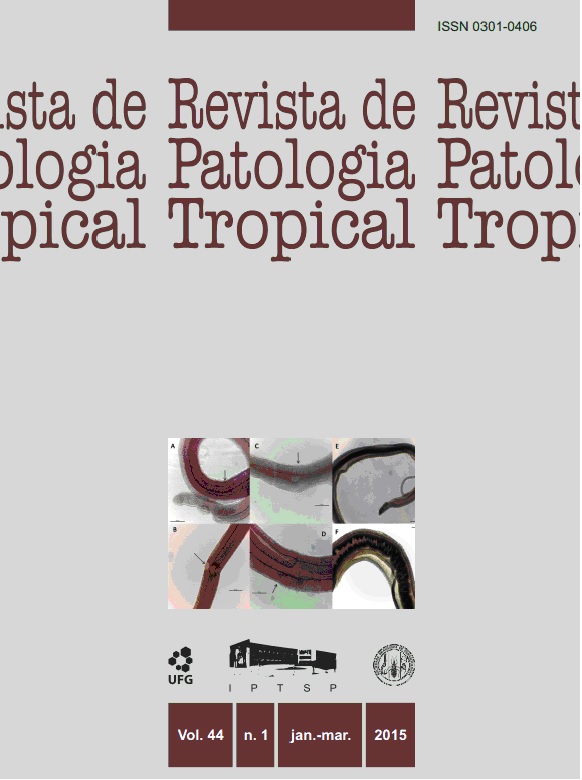Physical and chemical aspects of water from Aedes aegypti breeding sites in the urban environment and the implications for dengue control
DOI:
https://doi.org/10.5216/rpt.v44i1.34801Keywords:
Dengue, Aedes aegypti, breeding, vector control, physicochemical characteristics of water.Abstract
Dengue fever is an infectious disease whose agent is an arbovirus, which has four serotypes. Despitethe availability of a vaccine in an experimental stage and with promising results it is not yet available for the general population. Therefore, the control of dengue is still based on the reduction of vectordensity, eliminating containers with clean water that act as mosquito breeding sites. This studyaimed to evaluate the types of breeding sites and water with the purpose of better understandingthe containers colonized by this species and contributing to the improvement of control actions.In 14 months of collection, between October and April from 2003 to 2005, larvae and pupae werecollected and the following variables were measured: volume, dissolved oxygen (DO), pH, electricalconductivity and temperature of the water from the breeding sites. High rates of variation wereobserved for all measured parameters and larvae were recorded in water containing oil residue, rust,paint, salt and a high concentration of organic matter. These results show that the breeding sites ofAe. aegypti are not the classic “containers with clean water”. These findings bring more difficultiesand other implications for vector control. It is suggested that such knowledge should be included inthe content of courses for health workers, as well as in campaigns and dengue prevention programs,helping to address the problem.Downloads
Downloads
Published
How to Cite
Issue
Section
License
The manuscript submission must be accompanied by a letter signed by all authors stating the full name and email address, confirming that the material has not been published or is under consideration for publication elsewhere, and agreeing to transfer copyright in all media and formats for Journal of Tropical Pathology. The authors will not be paid for published articles. They are solely responsible for the content of those articles, even if the Editor holds the right to adjust them to the norms of the journal.
The reviewers will not be paid for the peer review process.

